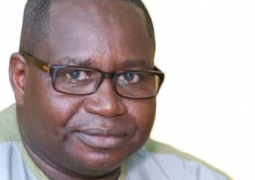A five-day workshop on Africa Monitoring of the Environment for Sustainable Development (AMESD) and on setting up the Gambia National Network of Users commenced on Monday at the Baobab Holiday Resort in Bijilo.
The forum funded by the European Union through the African Union is aimed, among other things, at helping African countries to improve the management of their environment and their natural resources.
It is also aimed at providing countries with appropriate information on their environment using state-of-the-art technologies, including communication technologies and Earth observation and information technologies.
Speaking at the opening ceremony, Dr Seydou Traore, a representative from AGRHYMET, said the AMESD programme is a Pan-African project started in
According to Dr Traore, the programme is being executed by the African Union through the five main regional economic groupings: CEMAC, ECOWAS, IGAD, IOC and SADC.
Mr Traore pointed out that the thematic areas of the Ecowas region include management of water resources, water and cropland regional management, local degradation mitigation and natural habitual construction, and coastal and marine management.
He noted that the AMESD West African component is under the responsibility of ECOWAS that designated the regional AGRHYMET centre (CILSS) as the regional implementing centre for West Africa, as well as improving environmental monitoring through a better access to earth observation data and information for better management of natural resources in the five regional economic centres.
According to Dr Traore, the earth observant (satellite receiving station) will monitor drought and crop management, water bodies, bush fire and other factors. He thanked the Gambian government for hosting the workshop that is part of the regional sensitisation of stakeholders and policymakers.
In declaring the forum open, Abdoulie Danso, deputy permanent secretary at the Ministry of Agriculture, said environmental monitoring for sustainable development “is very important”, especially under the current environmental conditions.
“The efficient monitoring of the environment under the current scenarios could always prove difficult without the use of modern technology and its applications,” he said.
“At the United Nations Millennium Summit held in 2000, African countries and the international community adopted the Millennium Development Goals (MDGs), committing themselves to adopt practical solutions to address development issues.”
Mr Danso also said subsequent to the adoption of the MDGs, African countries adopted the New Partnership for African Development (NEPAD) as a framework for their collective action for economic transformation and sustainable development of the continent under the purview of the African Union Commission.
He added that following the





